Devoxx UK 2018
Table of Contents
- Parallel and Asynchronous Programming with Streams and Completable Future
- Parallel vs Asynchronous
- Parallel Streams
-
[Streams Reactive streams](#streams–reactive-streams) - CompletableFutures
- References
- Reactive Spring Deep Dive
- Exploring the Real Power of Streams
- Kotlin for Java Programmers
- Springing into Kotlin
- Handling Data in Distributed Systems
Parallel and Asynchronous Programming with Streams and Completable Future
by Venkat Subramaniam
Parallel vs Asynchronous
- party example where we need pizza and drinks, get pizza and drinks in parallel, order and wait
Parallel Streams
- “Lambdas are the drug, streams is the addiction”
- Martin Fowler: Collection pipeline pattern
- Stream is an internal iterator - iterator on auto-pilot
- Imperative style has accidental complexity
- Functional style has less complexity and easier to parallelise
- Imperative style the structure of sequential code is very different from the structure of concurrent code
- Using stream the structure of sequential code is identical to the structure of cocurrent code
- enhances readability, debugability, testability
- Mutability and parallel don’t go together
- Last terminal operation wins
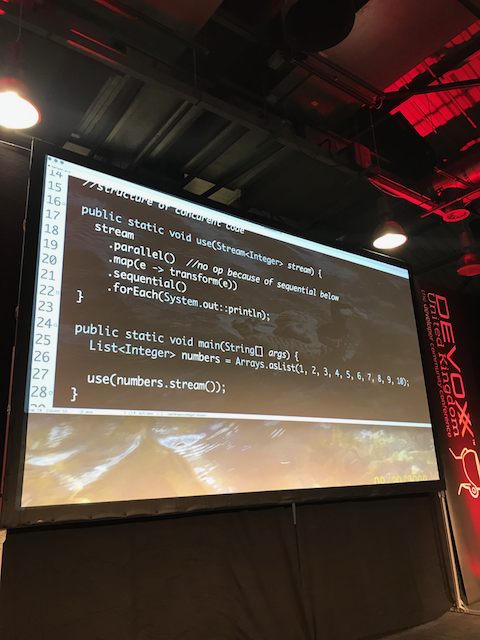
- Parallel stream uses Connon FJP
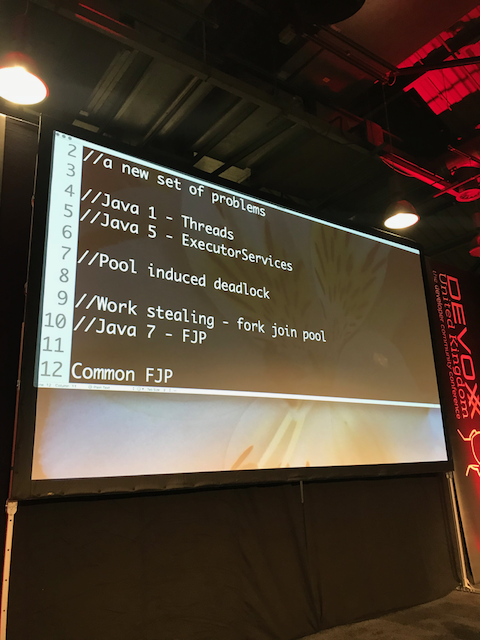
- Some methods are inherently ordered
- Some methods are unordered but may have an ordered counterpart
forEach(System.out::println); forEachOrdered(System.out::println); // doesn't guarantee ordering unless the stream does. Ex: List vs Set - filter and map can run in parallel
- reduce - (aka foldLeft) - runs as expected in parallel iff initial value = identity value, if not you may not get
expected result
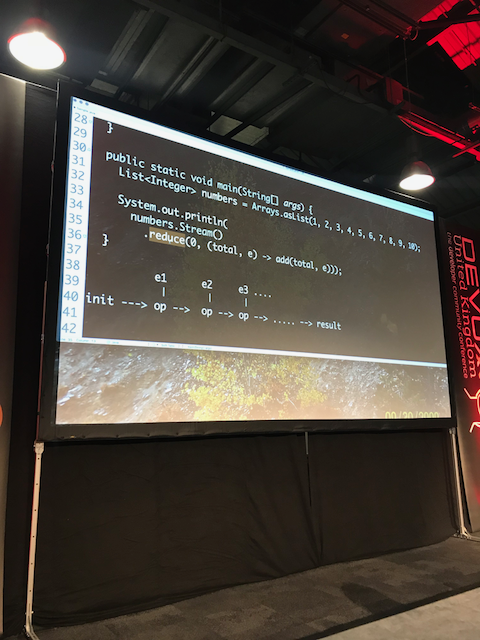
- monoid ??
- How many threads
- How many threads can I create? // bad question
- How many thread should I create? // good question
- Computation intensive vs IO intensive
- Computation intensive: threads <= # of cores
- IO intensive: threads may be greater than cores… how may, don’t know yet
#T = # of cores / (1 - blocking factor), where 0 <= blocking factor < 1
Streams | Reactive streams
-
sequential vs parallel synchronous vs asynchronous -
entire pipeline is sequential or parallel Depends -
no segments subscribeOn - no segments; observerOn - segments
CompletableFutures
- Non-blocking
- Stream | CompletableFuture
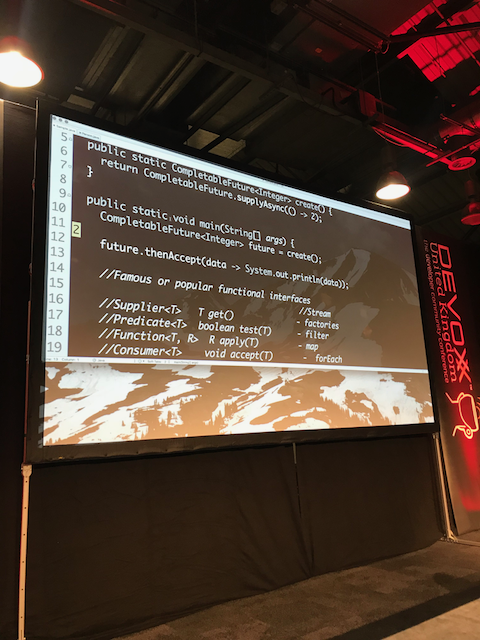
- Callbacks
- lacks consistency: first param data or error? no consistency
- hard to compose: callback chain or callback hell
- hard to deal with errors
- Exception handling and functional programming are mutually exclusive
- JavaScript world moved to promises
- may resolve, reject or be pending
- have two channels: data channel and error channel
- errors are first class citizens
- failure/error is like data
- CompletableFuture is Java is Promises in JavaScript
- have stages
- evert stage takes a CF and returns a CF
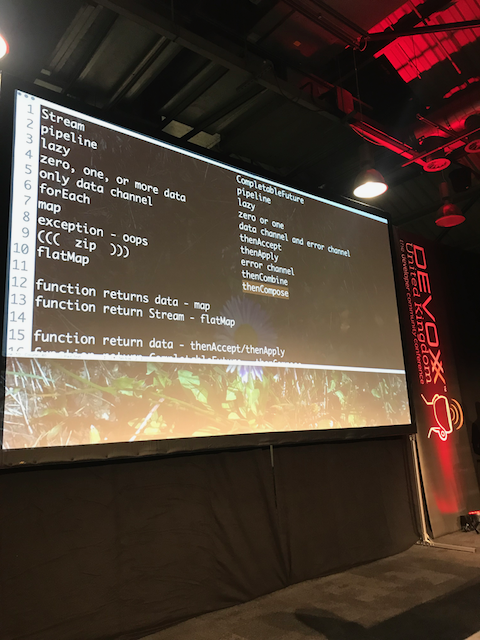
future.get()is a bad idea as it is a blocking call- Futures use the main thread when running something on a separate thread isn’t necessary/valuable
- Methods
- thenAccept()
- thenRun() // used to celebrate success of the accept op
- You can recover from an exception path and move back to the data path
---f---f---f f---f---f \ / f---f---f
References
- http://agiledeveloper.com/downloads.html
Reactive Spring Deep Dive
by Mark Heckler
- Non-blocking and event driven
- Scales with a small number of threads
- Key interfaces
- Publisher
- Subscriber
- Subscription
- Processor<T,R>
- Publisher
- Debugging with async reactive code is non trivial
Hooks.onOperatorDebug()- use
checkpoint() - to get full stacktrace:
checkpoint(description: "checkpoint A", forceStackTrace: true)
References
- https://projectreactor.io/
- http://start.spring.io/
- https://github.com/mkheck/reactive-spring-deepdiveite
Exploring the Real Power of Streams
by Venkat Subramaniam
- Postpone evaluation
- Applicative order vs Normal order
- most mainstream systems use applicative order
- applicative order: evaluation when applied or invoked
- normal order: execution is deferred
- Haskell is lazy, i.e. uses normal order or uses lazy evaluation
- Scala can do lazy evaluation when the
lazykeyword is usedlazy val x = compute(2) - How do we do lazy evaluation in Java?
- Lambdas are a level of indirection
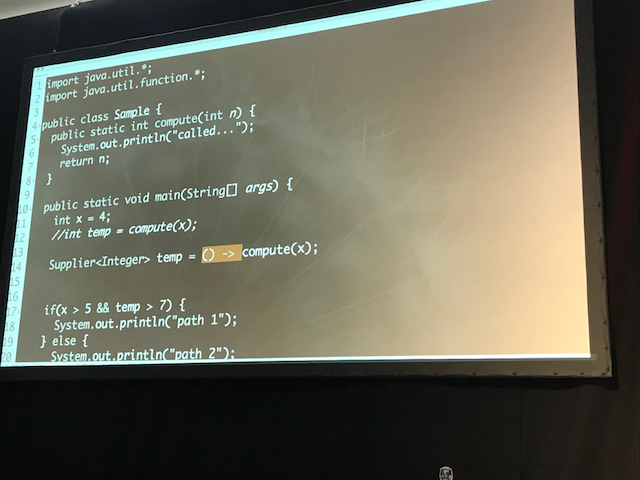
- Lombok also provides a
@Lazyannotation
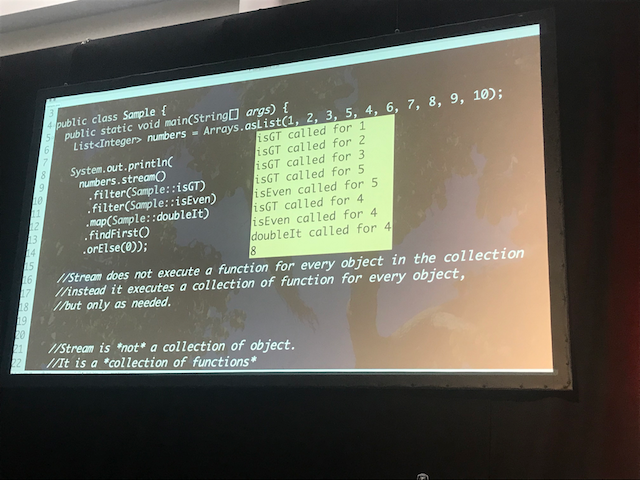
- Lambdas are stateless; closures carry immutable state
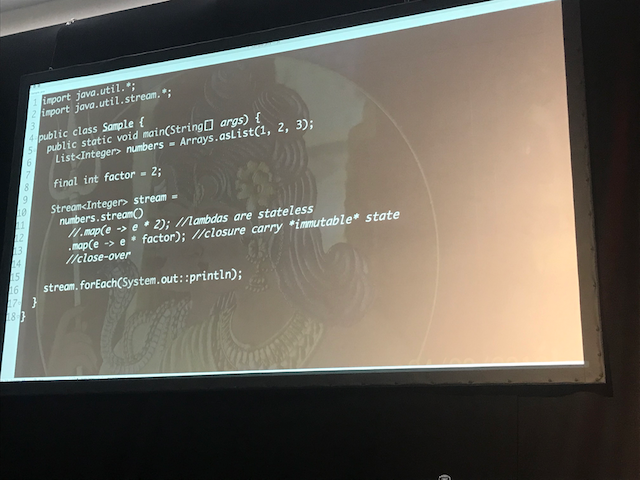
- Lazy evaluation at display
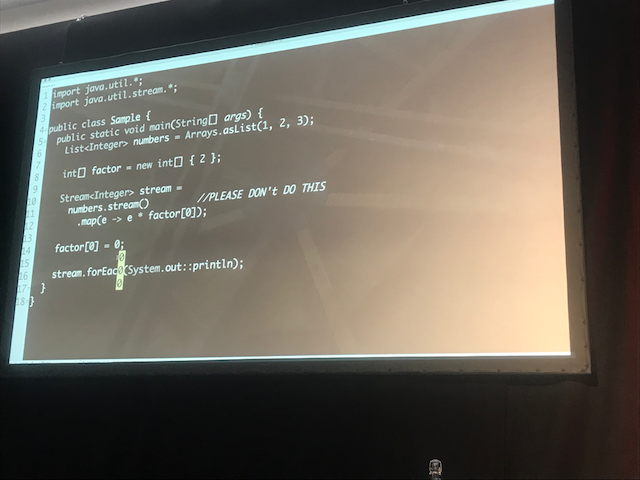
Kotlin for Java Programmers
by Venkat Subramaniam
- Running Kotlin
- compile and run
- java -jar
- kotlinc && kotlin
- use REPL
- run as script
- compile and run
- Niceties
- Semicolon optional
- Useful warnings
valandvar, like in Scala- String tempaltes
val name = "Sam" println("Hello $name") printlno("Hello ${name.length}") - Expressions over statements
- Default method args
- Classes are closed by default
- Pattern matching
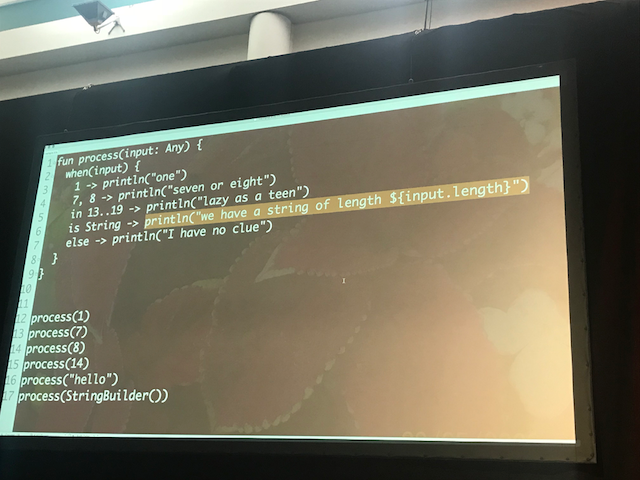
Springing into Kotlin
by Mark Heckler
- Java to Kotlin migration
- start with the pojos
- Intellij has auto-conversion support for Java to Kotlin migration
Handling Data in Distributed Systems
- Avoid DB transactions
- replace db transaction with logical transaction
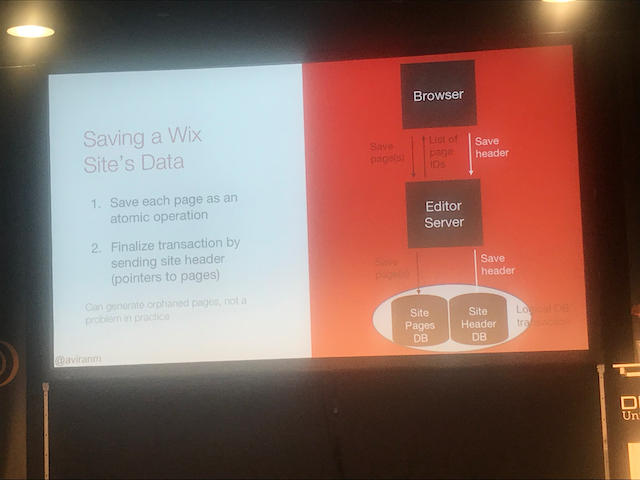
- replace db transaction with logical transaction
- DB and schema changes
- add fields
- for metadata (non indexed fields), use blobs such as json
- for searchable/indexed fields, use another table and join by primary key
- remove fields
- don’t touch DB, just stop using it in code
- complete schema or DB change
- feature toggle
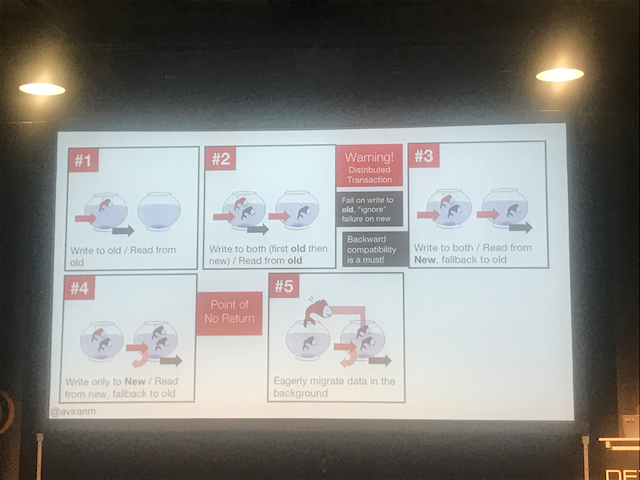
- feature toggle
- add fields